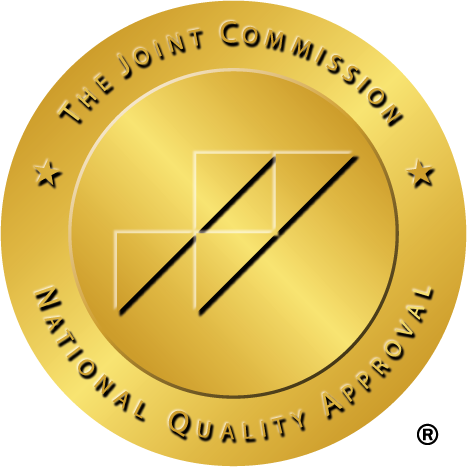KEY POINTS
- Psychological testing is an evidence-based approach to diagnosing underlying mental health issues.
- Common reasons to undergo psychological testing include diagnosing psychological disorders, testing cognitive abilities, career guidance, legal proceedings, and job screenings.
- Standardized tests investigate everything from mood, personality traits, memory, alcohol, and substance consumption to anger, relationship issues, coping mechanisms, parenting skills, and academic abilities.
The mental health crisis continues to be of concern in countries worldwide. Unfortunately, major global disruptions like the pandemic, wars, and other stresses of life continuously impact all different age groups, genders, and personal backgrounds.
In fact, the World Health Organization (WHO) now estimates that approximately one in four people will experience a mental health issue at some point. This has made it absolutely critical for individuals to seek the help they need to deal with them effectively.
Psychological testing and assessments help diagnose mental health concerns early while allowing individuals the medical intervention they need to address underlying issues such as autism, brain injury, learning disorder, or mental illness.[1]
At New Waters Recovery, our North Carolina-based mental health professionals can help you seek the relief you need when coping with mental health issues through proven psychological assessments that help you identify what may be causing you deep emotional setbacks.
SPEAK WITH AN ADMISSIONS COUNSELOR TODAY
What is Psychological Testing?
Psychological testing is an evidence-based and comprehensive approach to diagnosing underlying mental health issues. These assessments are given in relaxed but controlled settings by a licensed psychologist who will assess an individual who may be suffering from conditions that are evident on the surface or may still be undiscovered.
These neuropsychological tests are designed to measure different parts of an individual’s psyche, including their personality traits, intelligence levels, competency, and overall emotional well-being. During different types of psychological tests, there is a structured approach that is used. Assessments use different formats like questionnaires and interviews, including certain performance-monitoring tasks, to gain additional information.
At the end of the session or series of sessions, a psychologist will make an informed decision regarding the psychological condition of the individual or patient.
Why is Psychological Testing Needed or Recommended?
Psychological testing isn’t something that is loosely prescribed. Often, there may be evident signs of potential mental health distress, including addictive tendencies, suicidal thoughts, destructive behavior, increased anxiety, or a heightened sense of panic. However, not all neuropsychological assessments are prescribed because of a concerning sign.[2]
Here are a few reasons why psychological testing may be recommended for an individual:
- Diagnosing Psychological Disorders – This is one of the most common reasons an intelligence test might be recommended.
- Testing Cognitive Abilities – In some cases, young and older individuals may exhibit cognitive decline. Psychological testing helps to assess the extent of any learning disabilities or reduction in cognition due to old age or potential neurological disorders.
- Career Guidance – In some cases, assessments can help provide additional insight into a person’s interests and help them make better-informed decisions about their career path or educational pursuit.
- Legal Proceedings – During legal trials, individuals may be ordered to receive psychological testing by the courts to determine whether criminal actions that have been committed were born of free will choices or were due to uncontrolled actions brought on by psychological disorders.
- Job Screenings – Most government recruiters will make psychological assessments part of their new employee onboarding process. This is most common in law enforcement agencies or any other profession involving firearms or highly confidential government data.
What are the Benefits of Getting a Psychological Assessment?
A psychological assessment helps someone identify their mental and emotional strengths and weaknesses. Most people go through life without giving their mental health much thought, but it is also an absolutely critical component of your physical health.
One of the most beneficial aspects of a psychological assessment is early diagnosis. Most mental health conditions don’t get better on their own – many only worsen without intervention. By recognizing the need for treatment early on, individuals can reduce the likelihood of conditions ruling their lives and potentially minimize the medication they need to take long-term. Individuals looking for a more in-depth testing solution typically opt for a psychological evaluation, which is significantly more comprehensive and offers numerous clinical testing options.
What Types of Psychological Treatment Options are Available?
After an individual receives a psychometric assessment, there may be many prescribed paths depending on the outcome of the evaluation. However, regardless of the extent of someone’s mental health condition, numerous proven treatment options can be used to help cope.
- Cognitive Behavioral Therapy (CBT): Cognitive Behavioral Therapy is a form of talk therapy conducted by a neuropsychologist that helps individuals understand why they have certain thought patterns and how they act on them.[3] This type of therapy is commonly prescribed for individuals trying to treat anxiety disorders or depression as well as PTSD (Post Traumatic Distress Syndrome)
- Dialectical Behavior Therapy (DBT): Dialectical Behavior Therapy is another form of cognitive therapy that focuses on emotion regulation. DBT helps individuals manage and improve their stress tolerance by replacing potentially harmful reactions to personal distress with more positive ones.
- Psychodynamic Therapy: Psychodynamic therapy addresses the impact of unconscious thoughts and past experiences on an individual’s current behavior. This method helps those suffering from mental distress better comprehend their innermost emotional issues while incorporating problem-solving and can prove effective in treating conditions such as depression, anxiety, and personality disorders.
- Medication-Assisted Treatment (MAT): MAT is a strategy that employs licensed drugs, psychological therapies, and counseling to address substance use disorders, notably opioid dependency, that could also be related to a mental health disorder. The overarching goal of MAT is to facilitate enduring healing by diminishing the urge to use harmful substances, relieving withdrawal symptoms, fostering emotional well-being, and enhancing the general quality of life. MAT typically involves using medications, such as methadone, buprenorphine, and naltrexone, as an essential element in its approach.
SPEAK WITH AN ADMISSIONS COUNSELOR TODAY
What to Expect When Getting a Psychological Assessment
Psychological testing cannot be equated to standard multiple-choice checklists that operate on the basis of passing or failing. In contrast, psychologists employ projective tests and assessments to arrive at a particular diagnosis and formulate a customized treatment program.
A comprehensive psychological assessment usually begins with clinical interviews and also will include an array of screenings, including psychological tests or questionnaires, behavioral assessments, medical file reviews, and collaboration or consultation with other caregivers.
Standardized tests and questionnaires are tailored to investigate various facets of human experience, including but not limited to mood, personality traits, memory and concentration, alcohol and substance consumption, anger, relationship issues, coping mechanisms, parenting skills, and academic abilities.
After the test is complete, the clinical psychologist amalgamates the information obtained from the different screening methods and will formulate a conceptualization or diagnosis of your individual issue. This is when an appropriate treatment plan (if applicable) will be discussed.
If you are looking to undergo a psychological assessment in North Carolina, New Waters Recovery is here to help. Contact us today to start your journey to recovery.
Psychological Testing and Assessment FAQs
Depending on the underlying conditions or the extent of the challenges you might suffer, most personality test assessments can average anywhere between 90 minutes to several hours. In some cases, more than one session may be recommended.
Yes. The costs of a psychological assessment can vary significantly depending on where you live and the type of psychologist or treatment center providers you work with. On average, psychologists will charge an hourly rate of $200-$250 an hour.
While not a necessary practice, second opinions can put you in a better state of mind if you’re worried that your initial assessment may not have taken everything into consideration. However, most psychologists will use the same evidence-based assessment procedures, so the chances of a diagnosis being significantly different from the first are low.
Yes. Numerous case studies prove psychological assessments are an effective way to detect underlying mental health conditions early in their development and can help individuals get faster treatments.
In almost all cases, individuals undergoing a psychological assessment should not have parents, family, or other adults attend. The only exception to this should be when a minor specifically requests that they have a family member present during their session.
At New Waters Recovery, we provide a comprehensive psychological evaluation and assessment program for individuals battling substance use disorder or experiencing mental health symptoms.
Our program will provide you with an in-depth understanding of your condition, leading to a more accurate diagnosis and a personalized care plan.
Related Topics
Sources
[1] U.S. National Library of Medicine. (n.d.). Psychological testing in the service of disability determination. National Center for Biotechnology Information. https://pubmed.ncbi.nlm.nih.gov/26203491/ on May 12, 2023
[2] National Center for Biotechnology Information. (n.d.-b). https://www.ncbi.nlm.nih.gov/books/NBK321/ on May 12, 2023
[3] Cognitive behavior therapy – statpearls – NCBI bookshelf. (n.d.-a). https://www.ncbi.nlm.nih.gov/books/NBK470241/ on May 12, 2023


